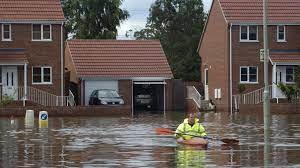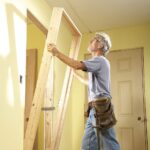
Flooding in the home can be a nightmare for homeowners, causing extensive damage, inconvenience, and costly repairs. Understanding the common causes of flooding is essential for taking preventive measures and safeguarding your property. In this article, we’ll explore some of the typical culprits behind home flooding and provide insights on how to prevent them, so you can play games at fastest payout online casino with a peace of mind.
Heavy Rainfall and Storms
One of the most prevalent causes of home flooding is heavy rainfall and storms. During periods of intense precipitation, drainage systems can become overwhelmed, leading to water pooling around the property or seeping into basements and lower levels. Insufficient or blocked gutters and downspouts can exacerbate the problem, allowing water to flow directly toward the foundation.
Prevention: Regularly inspect and clean gutters and downspouts to ensure proper water flow away from the house. Consider installing a sump pump in the basement to remove excess water during heavy rain events, or you can hire an expert for this while you game at leroi johnny.
Burst or Leaking Pipes
Faulty plumbing can quickly turn into a major flooding issue. Burst pipes, pipe leaks, or damaged water supply lines can release a significant amount of water into your home. Frozen pipes during winter can also lead to bursts, causing substantial water damage.
Prevention: Insulate pipes in colder areas of the home to prevent freezing and bursting. Regularly inspect plumbing for leaks and signs of wear, and promptly address any issues.
Plumbing System Blockages
Blockages in the plumbing system can disrupt the normal flow of water and lead to backups and overflows. Common culprits include foreign objects, grease buildup, and tree root infiltrations in sewer lines.
Prevention: Avoid flushing non-biodegradable items down the toilet, and use drain strainers to catch debris in sinks and showers. Regularly schedule professional inspections and maintenance of your plumbing system.
Malfunctioning Appliances
Appliances that rely on water, such as washing machines, dishwashers, and water heaters, can malfunction and cause flooding if their connections or internal mechanisms fail.
Prevention: Regularly inspect hoses, connectors, and water supply lines for signs of wear or damage. Replace old or worn hoses with high-quality, durable options. Consider installing water leak detection devices near appliances for early warning.
Foundation Issues
Foundation cracks or improper grading around the home can allow water to seep into basements and crawl spaces during heavy rain or flooding.
Prevention: Ensure proper grading around the home, so water flows away from the foundation. Regularly inspect the foundation for cracks and promptly seal them to prevent water intrusion.
Sewer System Backups
In some cases, sewer systems can back up and cause flooding in homes, especially during heavy rain or when there is a blockage in the sewer lines.
Prevention: Avoid pouring grease and other non-biodegradable materials down the drain. Consider installing a backwater valve to prevent sewage from flowing back into your home.
Natural Disasters
Natural disasters such as hurricanes, flash floods, and tropical storms can lead to widespread home flooding. While these events are beyond our control, having a flood emergency plan and staying informed about weather alerts can help minimize damage.
Prevention: Stay informed about potential weather hazards and have an emergency evacuation plan in place. Elevate valuable items and electrical systems above potential flood levels.
Conclusion
Understanding the common causes of flooding in the home is the first step toward prevention and preparedness. By taking proactive measures such as regular inspections, proper maintenance, and installing preventive devices, homeowners can protect their properties from the devastating effects of flooding.
Remember that in case of severe flooding, safety should always come first. If your home is at risk of flooding, evacuate to higher ground and seek professional assistance to assess and mitigate the damage once it is safe to do so.





